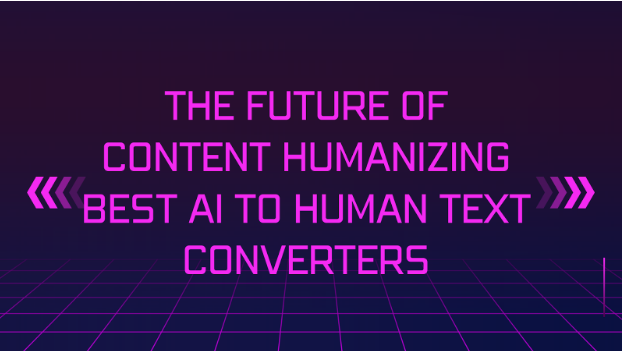Demystifying Data Engineering: Building the Foundation of Data Infrastructure
The infrastructure for data processing, analysis, and storage has become more and more dependent on data engineering in today’s data-driven society. The foundation of data-driven decision-making is data engineering, which helps businesses to glean insightful information from large, complicated databases. By examining the importance of data engineering, its primary duties, necessary competencies, and the changing nature of this vital profession, this essay seeks to demystify the topic.
Mastering Data Engineering: A Guide to Excellence
Data engineering is a critical discipline that forms the backbone of data-driven decision-making and innovation across industries. Mastering data engineering involves acquiring a deep understanding of data infrastructure, processing, and storage, as well as proficiency in relevant tools and technologies. This article aims to provide a comprehensive guide to mastering data engineering and the key steps involved in achieving excellence in this field.
Understanding Data Engineering
Designing, building, and maintaining the data architecture necessary to meet an organization’s data requirements is known as data engineering. Building and optimizing data pipelines, integrating data from several sources, and making sure the data is dependable, accessible, and available for analysis are the duties of data engineers. To effectively handle massive volumes of data, this frequently entails utilizing distributed systems, cloud computing platforms, and big data technologies.
Key Responsibilities of Data Engineers
Data engineers play a pivotal role in the data ecosystem, with responsibilities that include:
- Designing and developing scalable data pipelines to ingest, process, and transform data is a critical skill emphasized in Azure data engineering certification.
- Implementing and maintaining data storage solutions, including databases, data warehouses, and data lakes
- Collaborating with data scientists and analysts to ensure data accessibility and usability for analytical purposes
- Optimizing data infrastructure for performance, reliability, and cost-efficiency
- Ensuring data security, integrity, and compliance with data governance standards and regulations
The Intersection of Data Engineering and Data Science
Data science and data engineering are closely related fields, even though data engineering is primarily concerned with the architecture and infrastructure of data. To give data scientists the tools and the infrastructure they need to conduct advanced analytics, machine learning, and AI-driven insights, data engineers work in tandem with data scientists. This partnership demonstrates the mutually beneficial link between data science and data engineering, whereby the latter uses the former’s foundation to produce data-driven solutions and valuable insights.
Educational Pathways to Mastery
Formal Education
Data engineering, computer science, and related areas are offered as degree programs and certificates by numerous colleges and educational institutes. Gaining a thorough understanding of the fundamental ideas and principles of data engineering can be achieved by pursuing formal education.
Online Courses and Specializations
Numerous online courses and specialties related to data engineering are available on platforms such as Coursera, Udacity, and Udemy. These courses offer practical insights and hands-on experience in areas like cloud platforms, big data technologies, data processing, and data infrastructure.
Industry Certifications
Acquiring certifications from industry-leading organizations, like cloud service providers (like AWS, GCP, and Azure), can attest to a person’s proficiency with particular data engineering tools and platforms. Obtaining certifications typically necessitates completing demanding tests and proving a high degree of expertise in data solution implementation.
Practical Experience and Projects
Beyond theoretical understanding, mastering data engineering necessitates hands-on expertise in large-scale dataset manipulation, pipeline construction and management, and problem-solving with real-world data. Participating in hackathons, open-source initiatives, or practical projects can demonstrate real talents to prospective employers and offer invaluable experience.
Networking and Continuous Learning
Networking with professionals in the data engineering field, participating in industry events, and joining relevant online communities can facilitate knowledge sharing, mentorship, and exposure to the latest trends and best practices in data engineering. Continuous learning through reading industry publications, attending webinars, and staying updated on emerging technologies is essential to stay ahead in this rapidly evolving domain.
Here are the top 10 courses that can help you master data engineering:
- Data Engineering on Google Cloud Platform Specialization
This specialization offered by Google Cloud on Coursera covers key aspects such as data ingestion, processing, and analysis using Google Cloud tools
- Data Engineering Nanodegree
Provided by Udacity, this program offers hands-on experience with data modeling, ETL processes, and data warehousing using technologies like Apache Spark and AWS
- Data Engineering with Python
Offered on Coursera, this course teaches Python libraries for data engineering tasks, including Pandas, NumPy, and SQLAlchemy
- Big Data Engineering Certification
Edureka’s course covers Hadoop, Spark, Kafka, and other big data technologies essential for data engineering roles
- Data Engineering, Big Data, and Machine Learning on GCP
Another offering by Google Cloud on Coursera, this course focuses on building scalable data pipelines and implementing machine learning models on Google Cloud Platform
- Data Engineering for Everyone
Hosted on Coursera, this course provides a comprehensive overview of data engineering concepts, making it suitable for beginners
- Data Engineering Bootcamp
Offered by ProjectPro, this bootcamp covers data engineering skills like SQL, Python, ETL, and data modelling.
- Apache Spark with Scala
This course, available on Udemy, focuses on Apache Spark, a popular framework for large-scale data processing
- Data Engineering with AWS
Learn to design, build, and optimize data pipelines on Amazon Web Services through this course available on Udemy
- Data Engineering with SQL and Python
Offered on Coursera, this course teaches SQL and Python for data engineering tasks like data cleaning, manipulation, and analysis
Learning data engineering is an ongoing process, but you may equip yourself with the information and abilities needed to succeed in this industry by enrolling in these top 10 courses. Investing in these courses will enhance your data engineering abilities and create new employment chances in the constantly changing data industry, regardless of your level of expertise.







Leave a Reply